Chronos and Kairos
by Claire Jerram
As a Waldorf teacher in the early grades, I often wished for more time to prepare for the many hours with the students. My colleagues in the middle school complained of the opposite problem: enough time to prepare, but too little time with the students. Yet even they had two hours a day. Compared with a teacher, a priest may not spend two hours with a congregant in the space of several weeks.
Clock at the Seminary, March 2022 (note the piece of candy that was hidden by some little gnomes…)
The ancient Greeks recognized two different types of time: Chronos, the linear, quantitative unfolding of time, and Kairos, a season or specific moment, qualitatively different from other moments.
In my practicum for the Christian Community, I have noticed this difference between a teacher’s and a priest’s approach to time. While a teacher can use both Chronos and Kairos as tools, the priest must seize the Kairos.
From a quantitative point of view, the priest has very little ‘chronos’ to work with people. A teacher has a lot of it, sometimes too much. School is the main activity of a child’s life and they spend about almost half their waking life at school. Group religious life is not the main activity for most people of our time. It happens once a week or maybe twice, to enrich both work and play. Conferences and summer camps give a bit more. But what is possible in these brief hours?
Small seeds…
The first parable in the gospels tells of a sower who sowed his seed in many different terrains: the path, the rocks, the thorns, and the good soil. Christ then tells the disciples that the seed is the Word of God. Sometimes it lands on the path. The half-conscious coming and going of everyday life makes the ground too hard. Our flitting thoughts, the birds of the air, gobble them up. Or it lands on the rock, sprouts for a time, but the shallow soil lacks the moisture needed to sustain interest in a dry spell. Or it lands in the thorns, we have some space at first, but greed and other cares of life crowd out the seedling. Occasionally, the seed lands in good soil. The one seed, though quantitatively small, can produce fruit one hundredfold.
One hour spent in the Act of Consecration, or the ten-minute conversation with a fellow seeker, can influence the hours spent doing other things, with surprising power. The time that we carve out of our busy lives for cultivating religious life, painstakingly weeding out the distractions, makes for good soil. Sometimes a crisis will burn out the briars, leaving the ground clear. An illness, a crossroads, the approach of death, can all create good soil in our souls. These are Kairos, the season, the opportunity, the ripe moment that touches the eternal.
A conversation at the Foyer of the Christian Community of the Toronto Congregation, March 2022
Soil is made of organic and inorganic matter: humus, and rock. What a blessing that every moment is not a life-changing encounter. Sometimes the seed falls on rock because it needs to. We must sleep through many of our Chronos hours on earth, though we are technically awake. “Humankind cannot bear very much reality”, writes T. S. Eliot. But what a blessing to be on the priesthood path, and to orient our lives towards those moments of Kairos, when a ray of spirit reality can shine through.
Our Author: Claire Jerram
Claire taught at the Waldorf School of Baltimore for seven years. She was part of the Hillsdale Seven, who improvised their own pop-up seminary experience last spring. Now she is finishing up a Christian Community practicum in Stourbridge, England. She misses her garden in Baltimore, but enjoys being able to walk to everything in the small town of Stourbridge.
This is a blog entry by a student at The Seminary of the Christian Community in North America. These are posted weekly by the student editorial team of Marc Delannoy and Silke Chatfield. For more information about our seminary, see the website: www.christiancommunityseminary.ca and for even more weekly podcast and video content check out the Seminary’s Patreon page: www.patreon.com/ccseminary/posts.
The views expressed in this blog entry do not necessarily represent the views of the Seminary, its directors or the Christian Community. They are the sole responsibility of its author.





